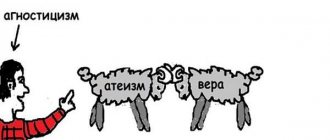Studying at a prestigious university, working in a highly paid position, own housing and a car - these items constitute the ideal life scenario for most people. Most, but not all. There are also those who have decided that such benefits are not capable of making him happy. Their name is downshifters. As a rule, such people exchange an office office for a cozy home chair or a small house in the village. It also happens that a person leaves a high position and becomes an ordinary office manager. Why is this happening? Are there any advantages to this? And what dangers might lie in wait? Let's figure it out a little lower.
Crowdfunding is not enough even for downshifting. Victor Pelevin. Love for three Zuckerbrins
Downshifters - who are they?
These people, like the majority, also at one time worked from 8 to 5, waited for Friday evenings, vacation, as well as salaries and bonuses.
But at one point they stopped and asked themselves: “For what? Why live by other people’s goals, sacrifice time and energy not in your own favor?” It is this question that gives rise to a new life as a downshifter. Downshifting, as a social phenomenon, appeared relatively recently, although in fact it existed before. Translated from English, this word means “switching to a low gear” (from automotive terminology). Simply put, a downshifter is a person who has abandoned his usual lifestyle (home-work-home) in favor of a measured life “for himself”.
Downshifters of our time often contrast themselves with “white collar workers” - successful careerists who strive for material well-being and do not disdain daily work in offices.
For downshifters, such a lifestyle seems inferior. In their opinion, the financial side is not the most important thing in life.
One of the most striking examples of this trend is German Sterligov. He traded life in an elite area for a farm and livestock farming.
Running from corporations
In the understanding of many, downshifting is associated primarily with freedom, leaving the role of a hired manager. According to Sokolov, in the West this movement was initially a kind of protest against the Big Four” (KPMG, Deloitte, PwC, Ernst & Young). The first two years squeeze all the juice out of you, and you live in an illusory future, putting off both friends and family “for later.” But will you have this family in two years?” There is another side to the corporate coin. Once upon a time, Anton Bulanov worked as director of client relations at Media Arts, later as creative director at BBDO Moscow and was, by and large, quite happy with life as a white-collar worker. Today Anton runs his own business - he is the CEO and creative director of the marketing agency LIVE! Creative/Marketing. In addition, he created the anti-career website www.antiexecutive.ru.
It all started with a trip to Japan: “I was traveling from Osaka to Tokyo on the Shinhaisen train, which goes at a speed of 250 km/h. Suddenly the clouds parted and I saw Mount Fuji. It is believed that those to whom it is revealed experience enlightenment. Me too. I looked around, saw huge office buildings, crowds of identical clerks, a subway station through which 3 million people pass a day, scary stores that sold black and dark blue suits for $100 and shirts for $10. It’s even indecent to bury in them, and yet this is the uniform of office workers. And I realized that a person here is worth nothing, that he is doomed to live in a narrow corridor: he is born into a family with a certain income, goes to school and college that correspond to this income, and then comes to the company and devotes his whole life to it because for the philosophy of loyalty to the employer. Of course, he receives a high salary, but he works like crazy. Ten days of vacation a year. The outlet is slot machines and spinning. Something crazy is being sold at every turn. You buy chewing gum for 50 cents, and it’s a box that slides out, and each piece is individually wrapped in foil. I felt scared. I realized that I saw the society we would come to in 50 years. I realized that I was not living my own life, that I would never be able to realize my modest talents and desires as an employee. Because any company pursues its own interests, not yours.”
However, young people still consider the largest international companies as desirable employers. Sokolov does not see anything surprising in this. Firstly, it’s fashionable, these companies are on everyone’s lips, they invest a lot of money in graduate recruitment programs. Secondly, working there is a good line on a resume. Thirdly, they offer decent salaries. And for young people, material reward is more significant than pleasure, self-realization, freedom: “But after a few years, you may get tired of both the work itself and the situation of “choice without choice”: the company wants you to grow, but to grow in the way that is convenient for it. Just remember the “grow or leave” system adopted by McKinsey&Co! Of course, in many companies there is staff rotation, but it does not solve the problem. Meanwhile, as time goes by, the value of salary growth is zeroed out: in the end, the difference between $5 thousand and $6 thousand is not fundamental. Frustration sets in."
However, neither Alexander himself nor many of his “downshifter colleagues” consider themselves enemies of corporations. Anatoly Batashev does not at all exclude the possibility of returning - if interesting projects are offered: “Having my own business, I am not inclined to blame my former employer. An employee, even in a responsible position, does not see even a hundredth part of the tasks that the employer must solve, and the sacrifices that he sometimes has to make.” “Many people enjoy working in a variety of corporations. You know, it's like a kitchen knife - you can cut salad with it and kill someone. It all depends on the person, no matter how banal it may sound. He chooses for whom and how much to work, and is responsible for his choice,” adds Sokolov.
Is a downshifter a strong or weak personality?
There is now active debate about whether downshifting is a manifestation of willpower and determination or, conversely, a downshifter is a weak-willed person.
Psychologists share two opinions: the first say that this is the right direction from a scientific point of view. Others think that downshifting represents selfishness and laziness. In their opinion, a downshifter is a person escaping from temporary material difficulties and stressful situations that happen to almost everyone. Thus, he is trying to avoid banal responsibility.
Experts also identify three main groups of people who become downshifters:
- Hostages of parental attitudes.
They choose the specialty that mom and dad impose on them, they get a job they don’t like just because it pays well. Subsequently, such people usually become dependent on their spouses. - Those who cannot cope with moral pressure.
Psychological and physical stress becomes unbearable for them. - Someone who is tired of a luxurious life.
Typically this group includes businessmen and politicians. Realizing that the income will be enough for several more generations to come, they decide to “live for themselves.”
So who are they really? Of course, if you look at this issue only superficially, you can conclude that these are the most common parasites and selfish people who avoid everyday responsibilities. In fact, the main goal pursued by downshifters is independence from society. Their own peace of mind is most important to them.
“Goa is a mental hospital with a dirty sea”
In the public consciousness, Thailand and Goa are the most popular havens for downshifters. But Marina D., who spends several winter months in Goa every year, thinks differently: “There are no downshifters here at all! There are vacationers: 1) “two-week vacationers”; 2) those who hang out from two months to six months; 3) “stuck” for several years. With the “two-week-olds” everything is clear - they arrived to an unknown place and for no clear reason. About 10% of them gradually join the second group and stay for several months to sit out the Russian winter. Among the “half-year students” there are people who have a stable business in Moscow, and they continue to do it; they just leave things to their managers from November to April. Everyone who lives in Goa for more than two months tries to make money on “two-week holidays”: they open restaurants, teach yoga, rent out housing previously bought from Indians at half price, just so as not to spend their money, the source of which is renting out Moscow housing or rich parents. Another category of Goan-Russians are those who urgently needed to leave the country. And not just necessary, but very necessary. They keep their secrets to themselves... Well, basically we are all climate migrants. Those who have not worked out in Russia remain forever in Goa. Konstantin was once a good craftsman; rich people made clothes from him. But in Russia it was unbearable for him. He simply did not dare to quit. He raised prices and orders continued to come. He started doing them very slowly, and they finally “left” him.
Next - renting out the apartment and leaving. I lived for two months in a temple near Bombay, practiced meditation, then came to Goa, lived on the beach for two weeks, and then rented a hut for $3 a day. This year he met his former employer here and almost fell at his feet, thanking him for his dismissal... He found himself in Goa, lives on $200 a month and, while his Moscow apartment is rented out, is unlikely to leave here.
But can it be considered a downshifter? As one of the Russians living here says, “Goa is a mental hospital with a good climate and a dirty sea. The main thing is to find a room where you feel comfortable.”
Downshifting: PROS
Downshifters are independent individuals who do not limit themselves to strict time limits and requirements.
They set their schedule only at their own discretion. After drastic changes, a lot of free time appears. Here, downshifters themselves decide how to use it: work at night and sleep until lunch, travel and live in exotic countries, and much more.
If a person does everything right for himself, then he will soon feel a surge of new strength, the absence of a terrible mood and constant lack of sleep.
Personal and professional growth appears. After such life changes, a desire to self-develop arises.
Downshifting: CONS
Man is a social being.
We communicate, work, continue our family line. Psychologists confirm that human society is capable of preserving itself only at the species level. This fact is not immediately realized if the individual fails to enter into the uniform rhythm of society. Against this background, a false impression is created that avoiding everyday problems will help personal growth and lead to peace of mind.
If a person decides to move away alone, then over time there will be a feeling of isolation from the world around him. This is why many downshifters return to their old life. An excellent example will again be German Sterligov, who lived with his family on a farm for about 4 years. After that, he returned to life in the metropolis.
[edit] Links
- Essay on downshifting
- Community in Zhezeszechka
- Shaov about downshifting attempt
- Who is a downshifter and what is downshifting
- A site with information about downshifters who have their own pages on the Internet
- Community “Village downshifting or aliens from the city”
- Downshifter Mustafa Ibrahim's website
- A community of refugees from the consumer society
- A site about how to get out of town
- Downshifters-Robinsons forum
| [ + ] Downshifter is such a beast. | |||||||||||||||||||||||
| |||||||||||||||||||||||
Is it so easy to be a downshifter?
The man chose a carefree “life for himself” and found harmony and happiness. But is everything so rosy? Let's figure out what problems downshifters face, especially at the beginning of a new life.
Material side
This is the first and most basic problem that will stand in the way.
Stable income has an important advantage - confidence in the future. Many downshifters cannot boast of this. Initially, it is very difficult to switch to a new status, especially if you had stable high earnings in the past.
Public opinion
As a rule, the attitude towards such people in society is not the most positive. Most people are unable to understand how a person could leave a stable income and choose a carefree life in the provinces.
Loss of status in society
Many downshifters lose all contact with relatives and stop communicating with friends against this background.
Old habits
It will be very difficult for conservatives to switch to a new stage of life.
feel the difference
Downshifters should not be confused with those who rush “from the frying pan into the fire” out of despair. Vera Alexandrova, psychologist, head of the personnel testing, assessment and audit department: “The main thing is that we are talking about the behavior of a healthy and adequate person, and not depression and degradation.” And Pavel Belenko, senior partner of the IMICOR consulting group, adds: “The reason for leaving may be a person’s inability to cope with the tasks facing him. When we were ordered to conduct an assessment of a 35-year-old financial director of a large grocery company, he was already dreaming of “fishing on the shores of Lake Geneva.” He was a radio engineer by training; in the era of business, he first sold 1C, then began providing accounting advice, and later financial advice. He met with entrepreneurs who understood even less about finance. They made him a trustee, the head of the financial department. When he stopped coping with tasks, he began to hide from his subordinates behind massive office doors and “at meetings.” The assessment helped him realize that he had been in the wrong place for a long time.”
Alena Spitsyna, Alina Olenina Article provided by the magazine
Western and Russian downshifters
Downshifting is, first of all, a social phenomenon.
Therefore, it will depend on the mentality of the country. What is the difference between our and Western downshifters? Let's try to figure it out. According to the observations of psychologists and sociologists, a calm attitude towards a career and earnings directly depends on the standard of living in the country. This phenomenon initially developed in the West. Statistics show that the majority of downshifters today live in the United States and Australia.
A Western downshifter is predominantly a member of the middle class with a stable, high income. He can afford to lose part of his earnings and rebuild his life.
There are very few downshifters in Russia - about 5%. Basically, they are represented by very rich people. After all, not everyone can afford to cut their income even a little. Our inhabitants prefer to go with their families to the Russian hinterlands and take up farming in Tula, Voronezh and other regions.
Other countries are also popular among Russian downshifters: Thailand, Turkey, Bulgaria, etc.
Popular regions of Russia
There are many downshifters living in Russia who do not want to leave their homeland.
The most popular region for moving is the Krasnodar Territory . According to Rossiyskaya Gazeta, for 2015 - 2022. 150,000 Russians from other regions settled there.
The advantages are obvious: the sea, warm climate, real estate prices are lower than in Moscow. Options for earning money: renting out housing, travel services, remote work. In the summer, we met a family from Sochi who rent out their apartment to vacationers and live in a tent outside the city all season. That’s where they work: they make rugs from stones.
People from all over Russia flock to the Voronezh region : the climate is average between Central Russia and the Black Sea coast, the economy is quite developed, the fertile soil creates good conditions for farming.
The capital's suburbs are suitable for connoisseurs of familiar infrastructure. Leningrad region and Moscow region . Renting housing is cheaper than in the capital, the transport network is well developed, which means you can make cultural and business “forays” into the city while living in more environmentally friendly conditions.
The national idea of Russian downshifting is moving from a city to a small town or village. This is explained by the relatively recent break with the traditional way of life. Often those leaving remain within the region, which has a number of advantages: it is easier to decide to move, family and friendly ties are preserved, and there is less hassle when renting out an apartment.
In recent years, the movement of eco-settlers has been actively developing in our country - many of them can also be called downshifters. According to various sources, 350 - 450 tribal settlements are registered in Russia. The largest number of them are in the warm Krasnodar Territory and the Yaroslavl Region; the Central Region, the North and the Altai Territory are also popular. There are both villages of wealthy people - former and current businessmen, and modest associations of environmental connoisseurs.
This summer, my husband and I visited the “Living Spring” settlement, located in the Abinsky district of the Krasnodar Territory, and observed how people, once tied to city amenities, drive along dirt roads, carry water from a well and cook in a wood-burning stove.











